The international tdAcademy Summer School 2024 had very good resonance and was successfully held, this time again in the region of l’Alt Empordà in Catalonia. 16 Master and PhD students with very different disciplinary and geographic backgrounds came together from 14th to 20th of September to learn about transdisciplinary methods and to apply them in an exemplary way to questions of regional land use conflicts. For all participants, this was an exciting and enriching continuation of the Summer School cooperation between the tdAcademy team at the Center for Technology and Society (ZTG) of the Technische Universität Berlin and the Institute of Sustainability Science and Technology (ISST) of the Universitat Politècnica de Catalunya (UPC).
In 2024, the Summer School was developed by Martina Schäfer (tdAcademy/ZTG) and Gemma Tejedor (ISST/UPC). Annabell Lamberth (ZTG) and Johanna Martinez (UPC) were involved in the organization. The program was enriched by inputs from lecturers of UPC (Prof. Elisabet Roca, Dr. Giulia Sonetti) and experts from regional institutions and NGOs (Jordi Estévez, Marta Ollich, Laura Macià (SOS Costa Brava); Josep Espigulé (Parc dels Aiguamolls de l'Empordà)
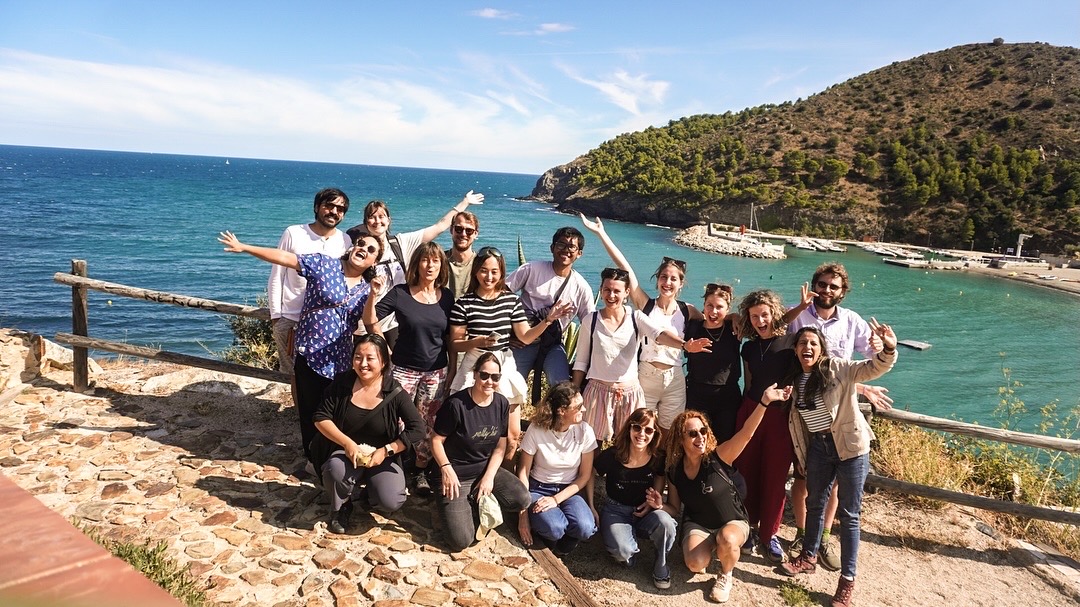
Source: Reny Ayu Wulandari, 2024
Transdisciplinary research is about bringing together knowledge and perspectives from different actors in science and society. The purpose is dual: to contribute to the solution of real-world problems and, at the same time, to provide new insights for science. This mode of research is especially suited to deal with complex real-world problems with a high degree of uncertainty, which nevertheless need to be adressed urgently.
Land use is one of the issues with conflicting interests and heterogeneous actors involved who differ in their perspectives. In the Alt Empordà region of Catalonia’s Costa Brava the different interests between actors from natural preservation, tourism, agriculture and production of renewable energy are very present and lead to conflicts.
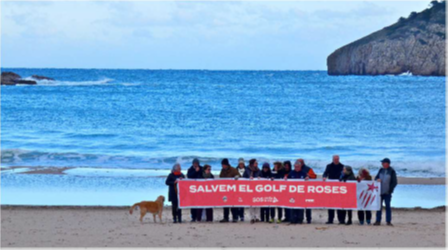
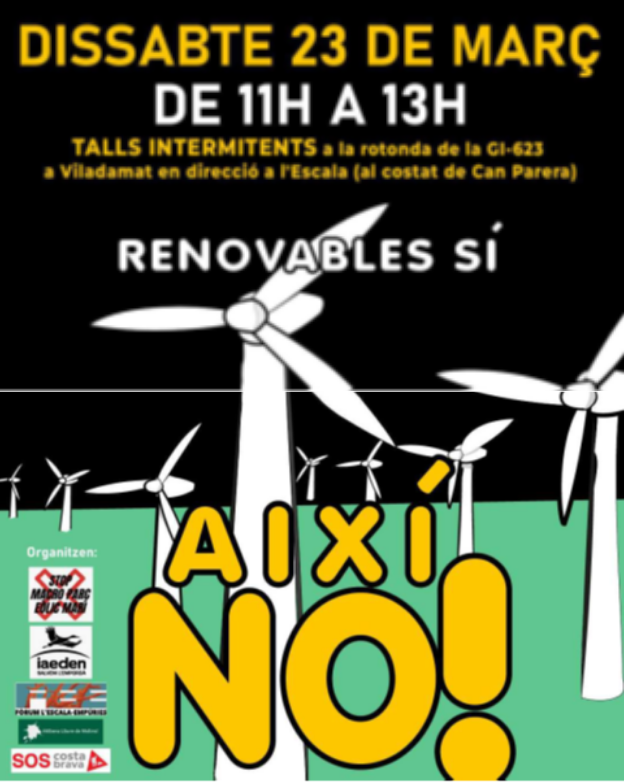
Protest against off-shore wind energy plants in the Alt Empordà region. Source: Slides of Jorge Estévez, 2024
Based on inputs and excursions about the different regional land use demands, the participants of the Summer School learnt how to set up transdisciplinary research projects. A joint understanding of the problem and the formulation of joint research questions are essential first steps in this kind of collaboration between scientific and non-scientific actors.
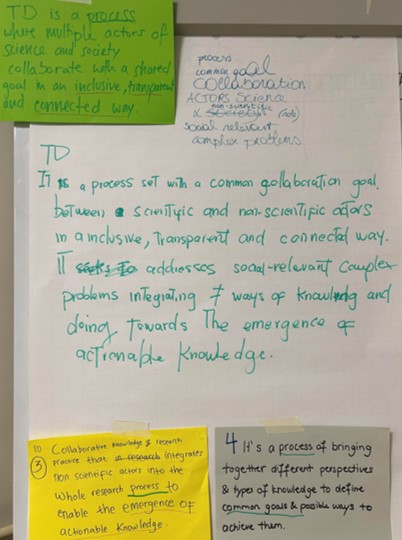
Jointly developed understanding of transdisciplinarity by the participants of the Summer School 2024. Source: Martina Schäfer, 2024
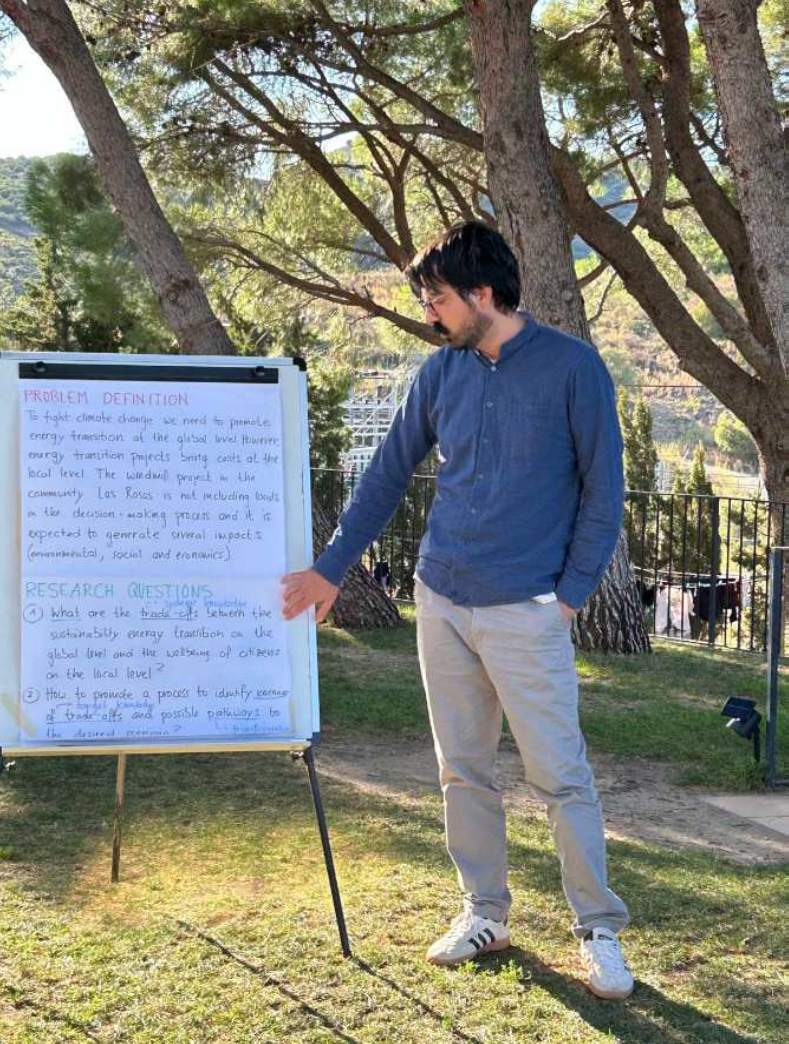
Jointly developed problem formulation and research questions. Source: Gemma Tejedor, 2024
In TD projects, the participation of actors from different societal sectors plays an important role – whom to involve in which phase of the research process with which goals and methods are therefore crucial questions. Other important foci are knowledge integration and the continuous reflection of the societal impacts the transdisciplinary research team wants to achieve. Based on inputs regarding the theoretical foundation of td-research but also on methodological approaches, the participants developed “their” research project in small groups and tested participatory methods.
Insight by students: “It was good to see the different stages of actor involvement in another way and it helped me better understand how to locate myself in the TD landscape with my current research and get ideas to where I want to go.”
These core activities were complemented by a reflection on Inner Development Goals for td-research led by Giulia Sonetti (guest lecturer at UPC) and an open space session in which the participants could choose the topics they were most interested in for discussion.
On the last day, the participants presented their results to interested persons from UPC and ZTG as well as KTH Stockholm and University of Valencia, among others, in a Zoom meeting. The three groups chose different foci. One of them was dealing with the question of how a shared vision for sustainable regional tourism could be attained. Being confronted with serious droughts in the region, the second one focused on the problem of regional water management which is able to satisfy the needs from different actors in agriculture, nature preservation and tourism. The third group wanted to contribute to solving the conflict between preservation and generation of renewable energy by showing the social, environmental and economic impacts of different options as a basis for creating a joint vision.
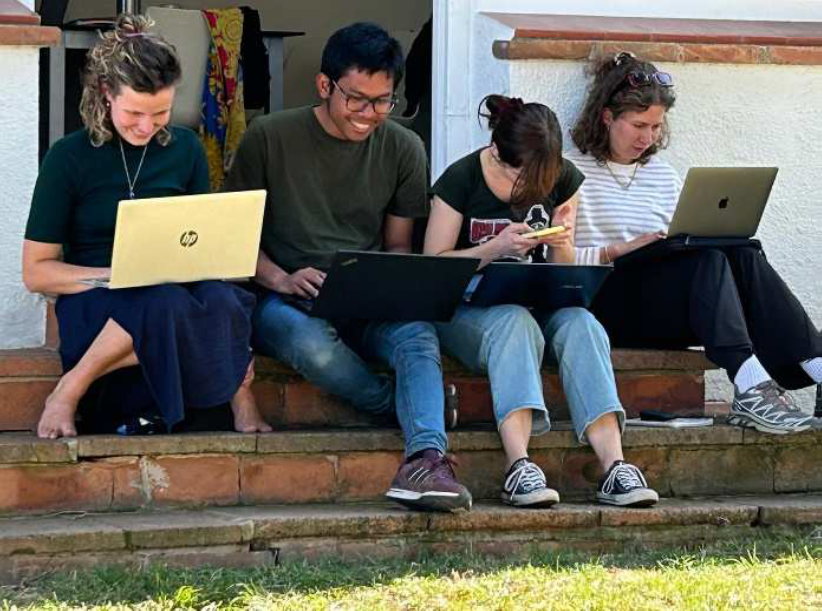 ´
´ 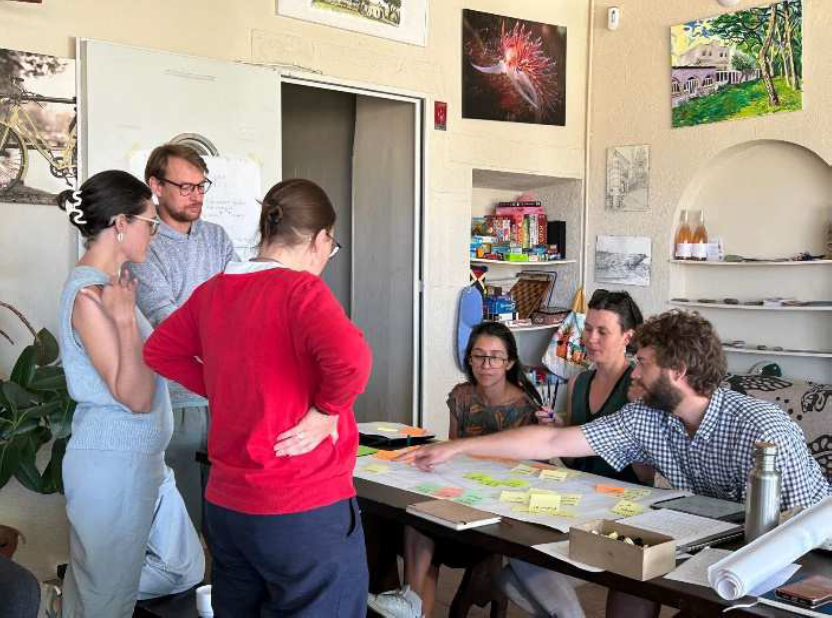
Group work - inside and outside. Source: Gemma Tejedor, 2024
In this third edition of the summer school, it was again possible to gather applicants with different geographical backgrounds from different countries (e.g. Ireland, Belgium, Indonesia, Germany, China, Columbia, Spain, the Netherlands). There were participants with very different professional and experience backgrounds (master students and PhD students), so that the participants could learn a lot from each other. This fruitful mixture was highly appreciated by all participants and contributors. The following main lessons learnt were mentioned in the final evaluation:
“Social impact is really also at the core of the concept of transdisciplinarity”.
“That TD research can be complex and painful but also insightful and socially sustainable and is crucial to a healthy development in global research”
